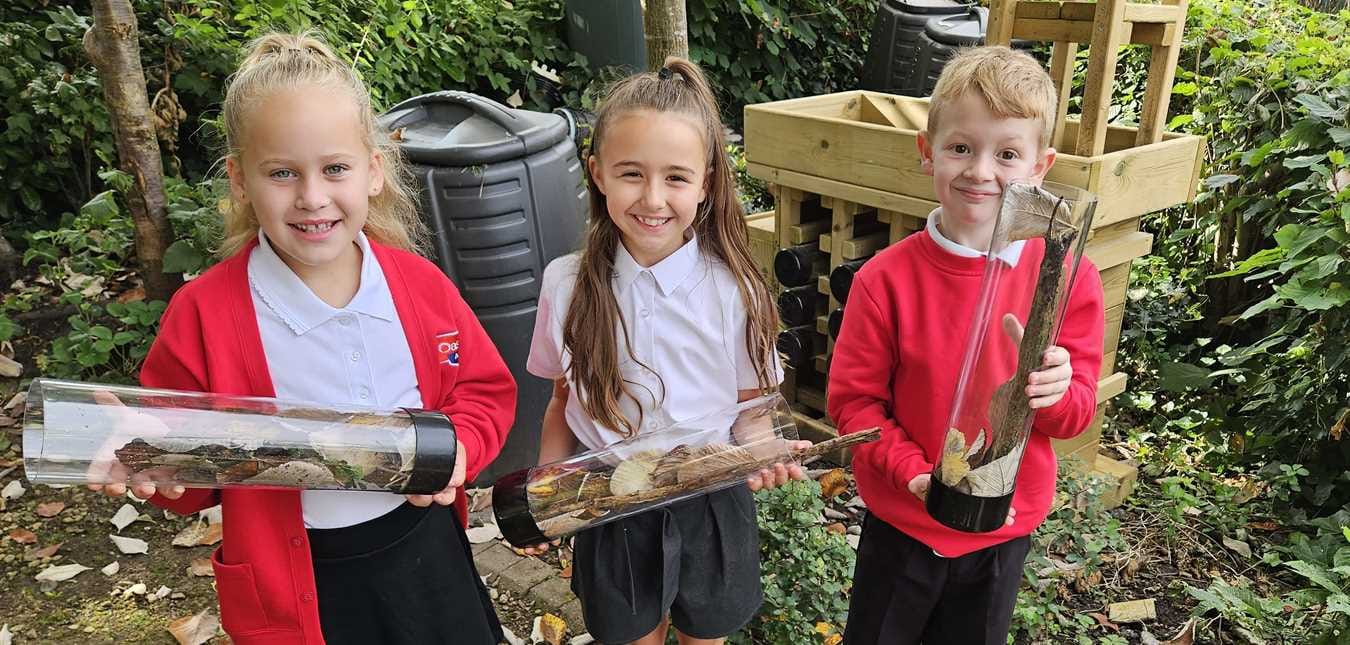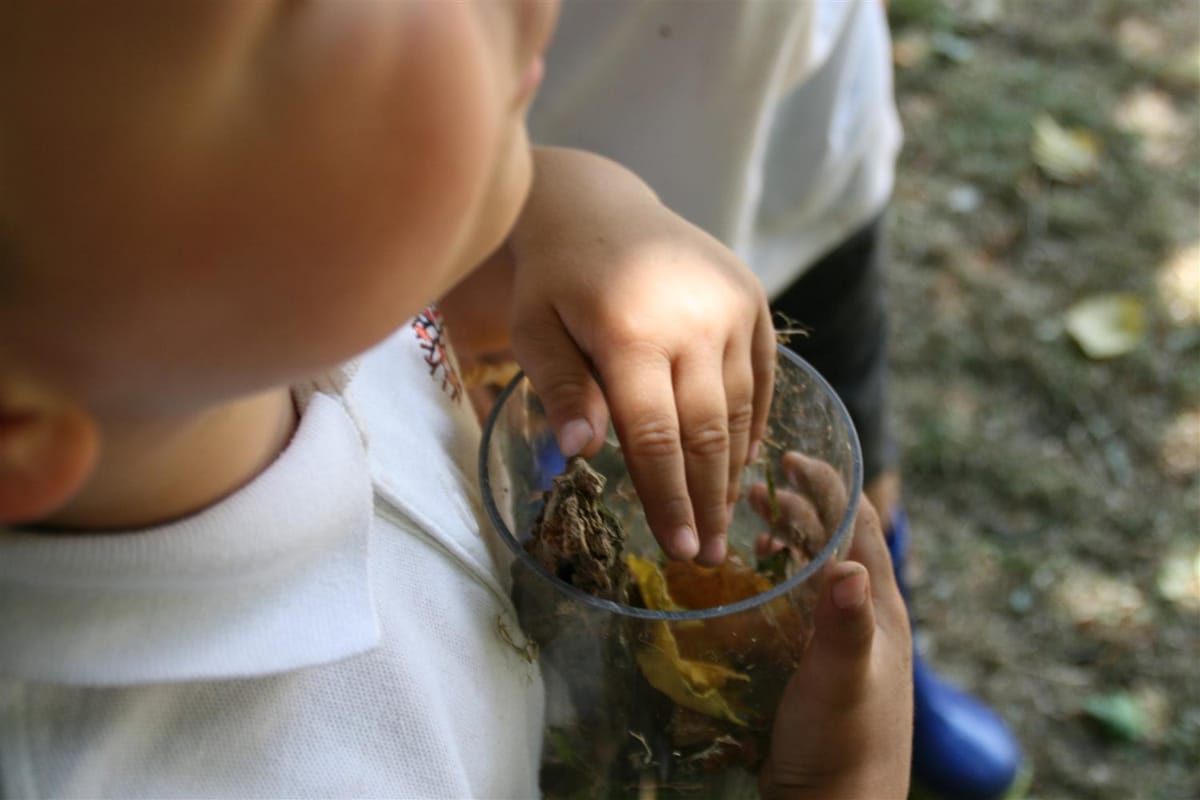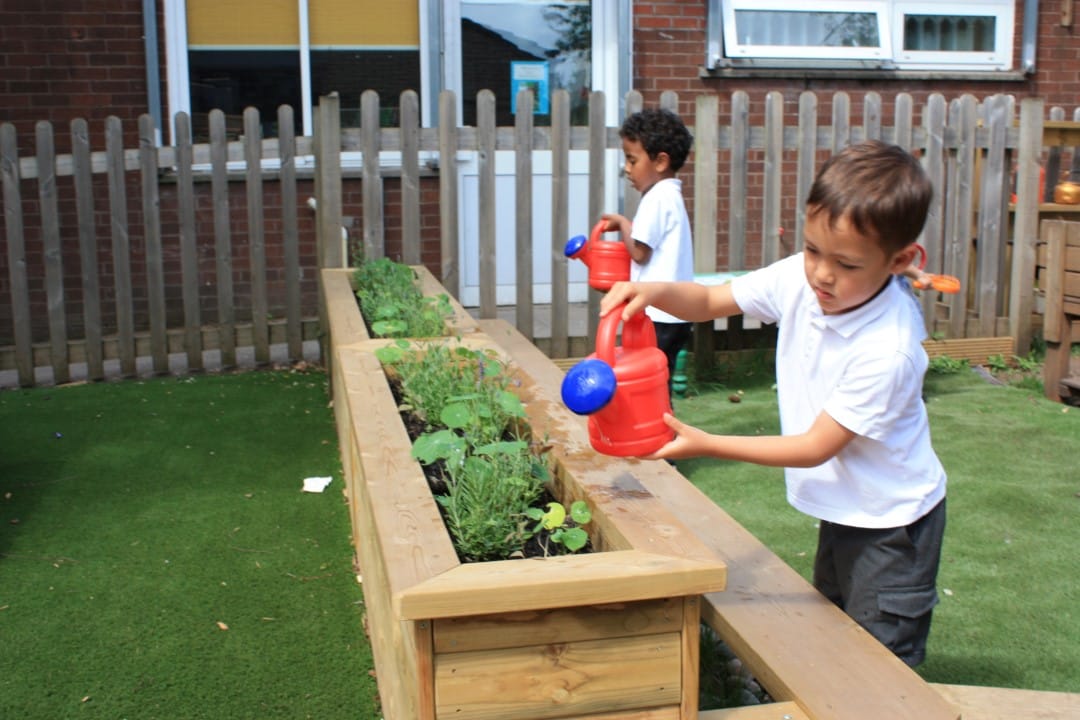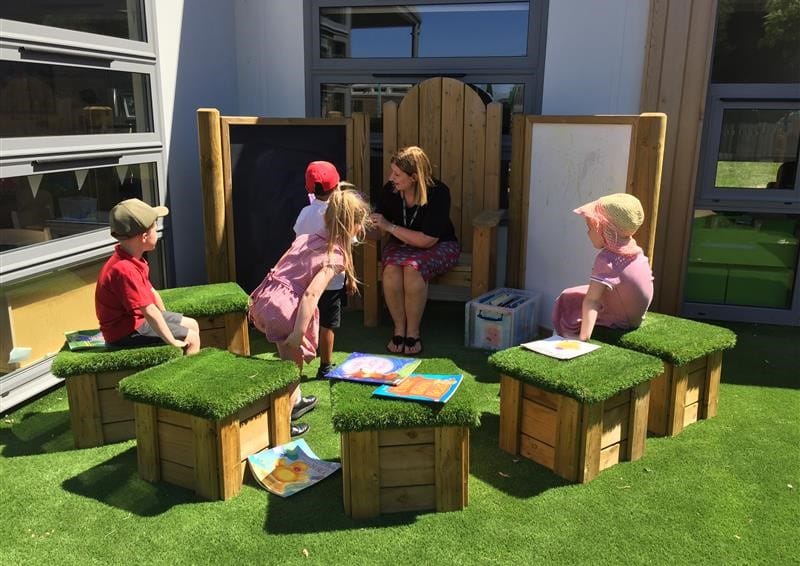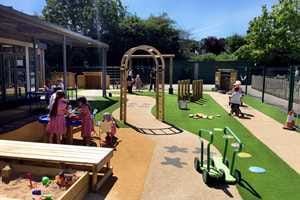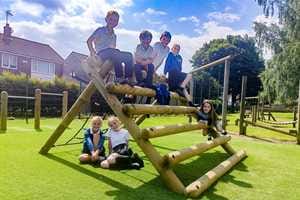
Lesson Ideas and Activities
Celebrate National Insect Week 2024!
Children love the great outdoors and the wonders of nature, especially searching under logs and rocks for creepy crawlies.
So why not take a moment or two this week to uncover the wonders of minibeasts and encourage young people to explore in their gardens, and local parks or even walking home from school and spot all different insects as they go?
What is Insect Week?
National Insect Week 2024 is a celebration of all things insect! The Royal Entomological Society organises the week-long event providing an opportunity to participate in insect science, learn from experts, and have fun.

Whether you are fascinated by fleeting mayflies or in awe of dragonflies’ compound eyes, National Insect Week will run from 24th to 30th June and everyone can get involved.
Insect Week is a biennial event celebrating more than a million insect species that have been discovered and named across the world. This year's theme is 'Little things that run the world'.
A Event for All!
Insect Week is an inclusive celebration, appealing to all ages. The organisers, the Royal Entomological Society, hosts a diverse array of events. From captivating talks on butterfly migration to hands-on workshops exploring beetle diversity, there’s something for everyone.
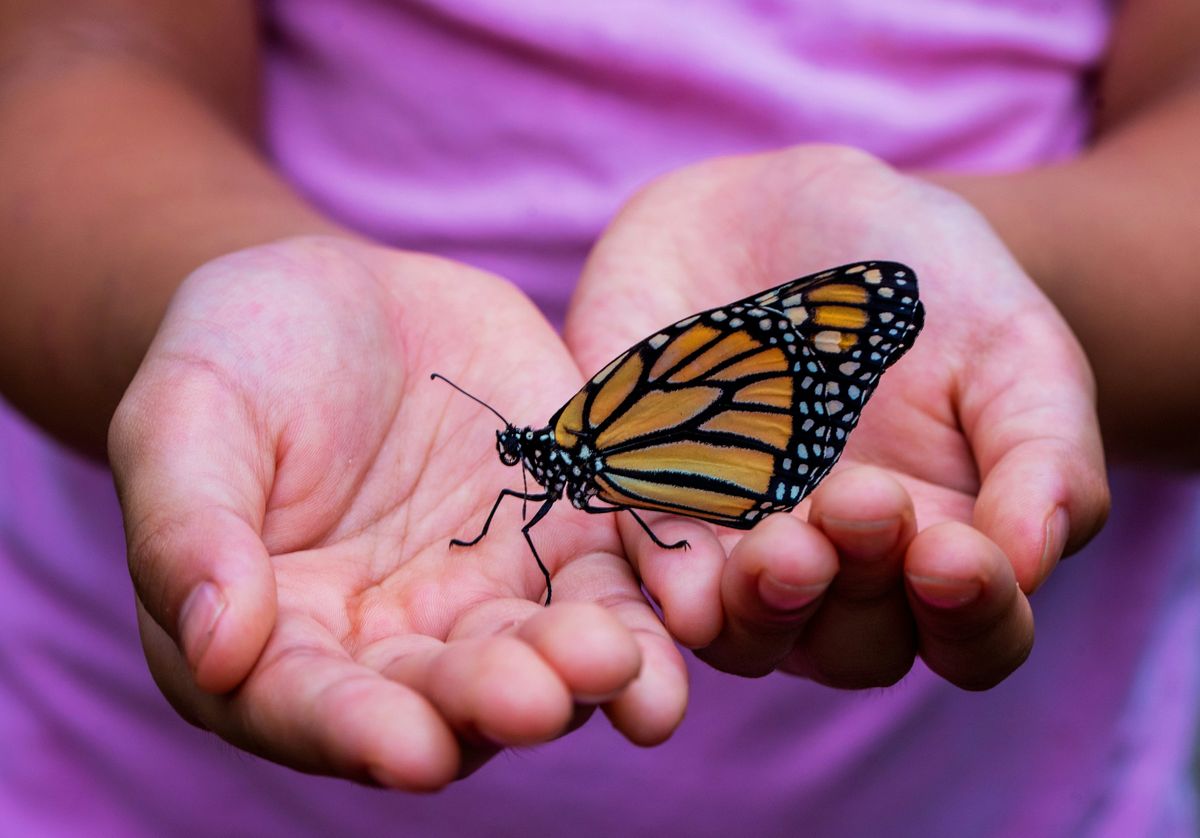
Whether you’re a budding entomologist or simply curious about minibeast that share our world, the next insect week offers an engaging experiences for all to enjoy!
The History of Insect Week
Insect Week, formerly known as National Insect Week, was formed in the UK. It was created in 2014 to educate British citizens about the vital role insects play in our ecosystems and to raise awareness of the connections between conservation, insect science, and natural history.
Since then, it has become an annual celebration, usually held in the last week of June. The week is organised by the Royal Entomological Society and supported by numerous partner organisations.
Its purpose is to engage and educate the general public about the importance of insects and entomology through hundreds of events across the UK.
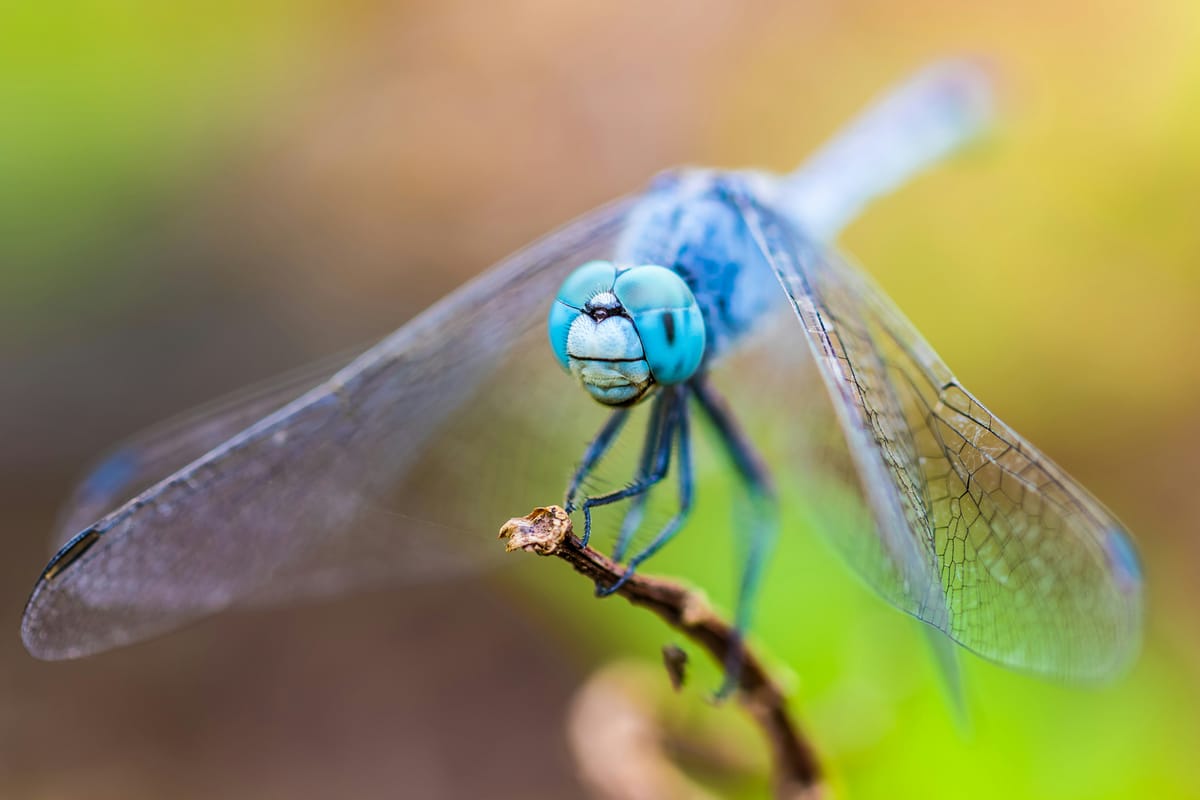
Above all, National Insect Week is aimed at encouraging young people to explore the fascinating world of entomology and discover and learn from the wonderful entomologists who study these remarkable creatures and become young entomologists themselves!!
Insect Week has been supported and has steadily gained popularity each year with a large number of partner organisations, schools, and even celebrities joining in promoting this celebration of insects.
The number of partner organisations that get involved are:
- Local wildlife trusts to renowned entomologists, the enthusiasm for insect-related events has grown.
- Schools have incorporated insect-themed activities into their curricula, fostering curiosity among young learners.
- Celebrities (such as The Prince of Wales, Prof David Bellamy OBE, Chris Packham, Kate Humble, and Mike Dilger) have lent their voices to raise awareness about the vital role insects play in our ecosystems. This Insect Week will be lunched by TV presenter Jonathan Ross in the Natural History Museum's Wildlife Garden, which runs from 23-29 June 2014.
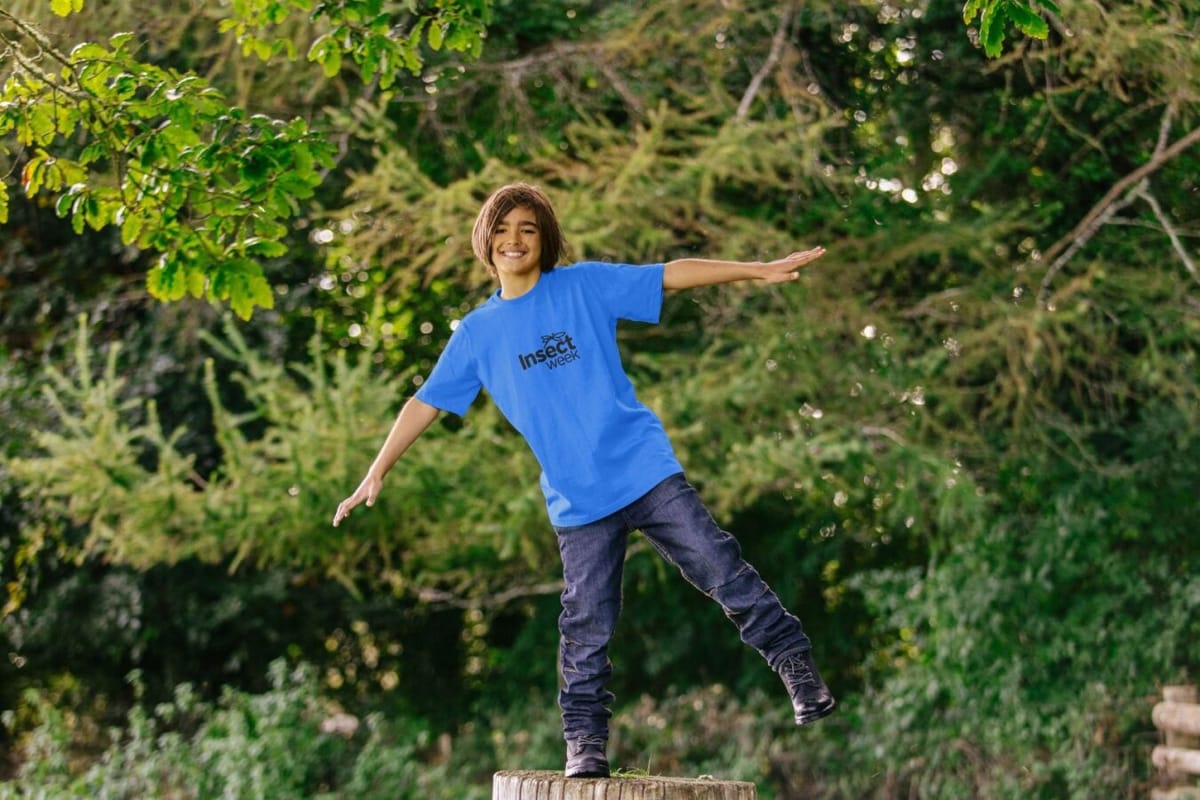
As the buzz around Insect Week intensifies, it becomes a vibrant platform for appreciating and understanding these remarkable creatures with the help from a large number of partner organisations.
Why is Insect Week Important?
Insect Week is a celebration of all things insect. It’s an opportunity for people across the UK and Europe to engage in insect science (the science natural history) and learn more about insects, learn from experts, and have fun during this event. But why is it important? Let's take a look:
- Biodiversity: Insects make up the majority of Earth’s species. By celebrating them, we raise awareness and children's interests about their vital role in ecosystems. They pollinate plants, recycle nutrients, and provide food for other animals.
- Conservation: Insect populations are declining due to habitat loss, pesticides, and climate change. Insect Week encourages conservation efforts, emphasizing the need to protect these tiny but crucial creatures.
- Education: Insect Week inspires curiosity and learning of science natural history. It engages people of all ages, fostering a deeper understanding of insects’ significance and their impact on our lives.
- Inspiration: Insects’ incredible adaptations, behaviors, and diversity inspire interests such as scientific research and artistic creativity. From dragonfly eyes with thousands of facets to the silky webs of spiders, they captivate our imagination.
So, whether you’re a budding entomologist or simply curious, Insect Week matters as children will learn more about insects, natural history and conservation — it’s a chance to appreciate the little things that truly run our world!
Why Insects Matter
In the UK, our insect populations have suffered drastic declines, which are set to have far-reaching consequences for both wildlife and people. The Wild Life Trust states that a third of our food crops are pollinated by insects, and as many as 87% of our plants are pollinated by animals (and the majority of those are by insects) so therefore there is a lot to lose.
These fascinating creatures play a vital role in our ecosystem and for human survival.
Here's why they matter:
- Pollination: Insects, including bees, butterflies, and hoverflies, pollinate flowers and crops, ensuring fruit and vegetable production.
- Waste Breakdown: They breakdown organic matter, contributing to soil fertility.
- Food Source: Insects serve as food for birds, bats, reptiles, and amphibians.
- Environmental Indicators: Their presence or absence displays environmental health and changes.
To save insects, we must all become "insect champions" by taking action at home, in our communities, and advocating for pesticide reduction. Let's protect these tiny heroes by teaching our children about the science of natural history and conservation!
The Benefits of Teaching Children About Insects
Teaching children about bugs and insects offers a multitude of benefits:
- Biodiversity Appreciation: Learning about insects fosters an appreciation for the diverse forms of life on our planet. Children will therefore learn about all the different varieties of insects from fluttering butterflies to work mad ants, and gain a greater understanding of their vital roles in the different ecosystems.
- Scientific Inquiry: Having the opportunity to explore different insects promotes scientific curiosity. Children will get the opportunity to see first hand metamorphosis, study insects anatomy and learn about life cycles. Having hands on learning and experiences nurture children's natural inquisitiveness and lay the foundation for future scientific learning.
- Connection with Nature: Insects provide a tangible link to the natural world. By observing them up close, children develop empathy and a sense of wonder. They learn that even the smallest creatures play essential roles in maintaining balance and harmony in our environment.
- Dispelling Fears and Misconceptions: Many people fear insects due to misconceptions or cultural biases. Teaching children about insects helps dispel these fears. When they understand the ecological importance of bugs, they become less likely to view them as pests or threats.
- Environmental Responsibility: Early exposure to insects instils values of empathy and environmental responsibility. Children recognize that insects pollinate plants, break down waste into fertile soil, and serve as food for other animals.
Therefore, introducing children to the fascinating world of insects is an essential element that not only enriches their understanding of nature but also empowers them to protect these tiny yet crucial creatures.
.jpg)
Lesson Ideas For Insect Week!
Pentagon Play has crafted a fun and exploratory week long Lesson Plan idea to incorporate into your Early Years Learning about Insects and Minibeasts.
Lesson Plan 1: Create a Bug Hotel
Building a bug hotel is a fantastic activity for young learners, especially in their early years (EYFS). It not only engages their curiosity but also teaches them about biodiversity and conservation. Here are some lesson plan ideas for creating bug hotels:
Materials Needed:
- Pentagon Play Bug Hotel
- Sticks
- Leaves
- Twigs
- Moss
- Soil
- Stones
- Grass
- Minibeast worksheet
- Magnifying Glass
Lesson Duration:
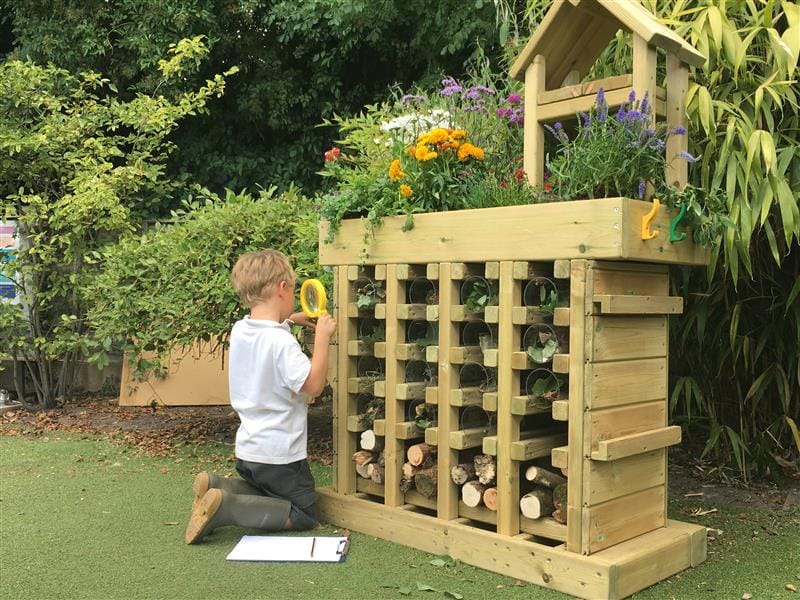
This is a lovely week-long lesson for the children to enable them to create the Play Bug Hotel for the minibeasts as well as observe and identify them.
Lesson Outcomes:
- To communicate with each other by asking simple questions about their ideas and information and discussing shared experiences.
- To explore and discover different features of habitats, nature, and the impact of human activity.
- To identify and classify different species of minibeasts
- To be able to construct a bug hotel
- To understand conservation and biodiversity
Lesson Introduction:
With the children discuss what they understand by the term “minibeast”, can the children give examples of them? Ask the children why humans should help them.
Tell them that without insect plants would not be pollinated and therefore there would be no food, recycle nutrients, and provide food for other animals.
Ask the children why there are less insects now a days? They are declining due to habitat loss, pesticides, and climate change. Include the terms biodiversity and conservation in the discussions.
Show the children all the different types of minibeast that can be found in a typical UK playground/garden /park. A good reference for any school would be Pentagon Plays Nature Identification Chart in their Wildlife Area. In pairs ask the children to discuss why we should help make homes for them.
Lesson Activity 1:
In small groups take the children outside to the Pentagon Play Bug Hotel. This fantastic resource comes with 16 removable polycarbonate tubes for homing a multitude of different minibeasts! Each group within the class can be allocated its own “Bug Pod”.
Ask the groups what in their mind would make the perfect habitat for insects. Then get the groups to fill their “Pods” with different natural materials such as leaves, bark, sticks, moss, stones, and grass (some dry and some wet), to create the perfect environment for minibeasts to thrive!
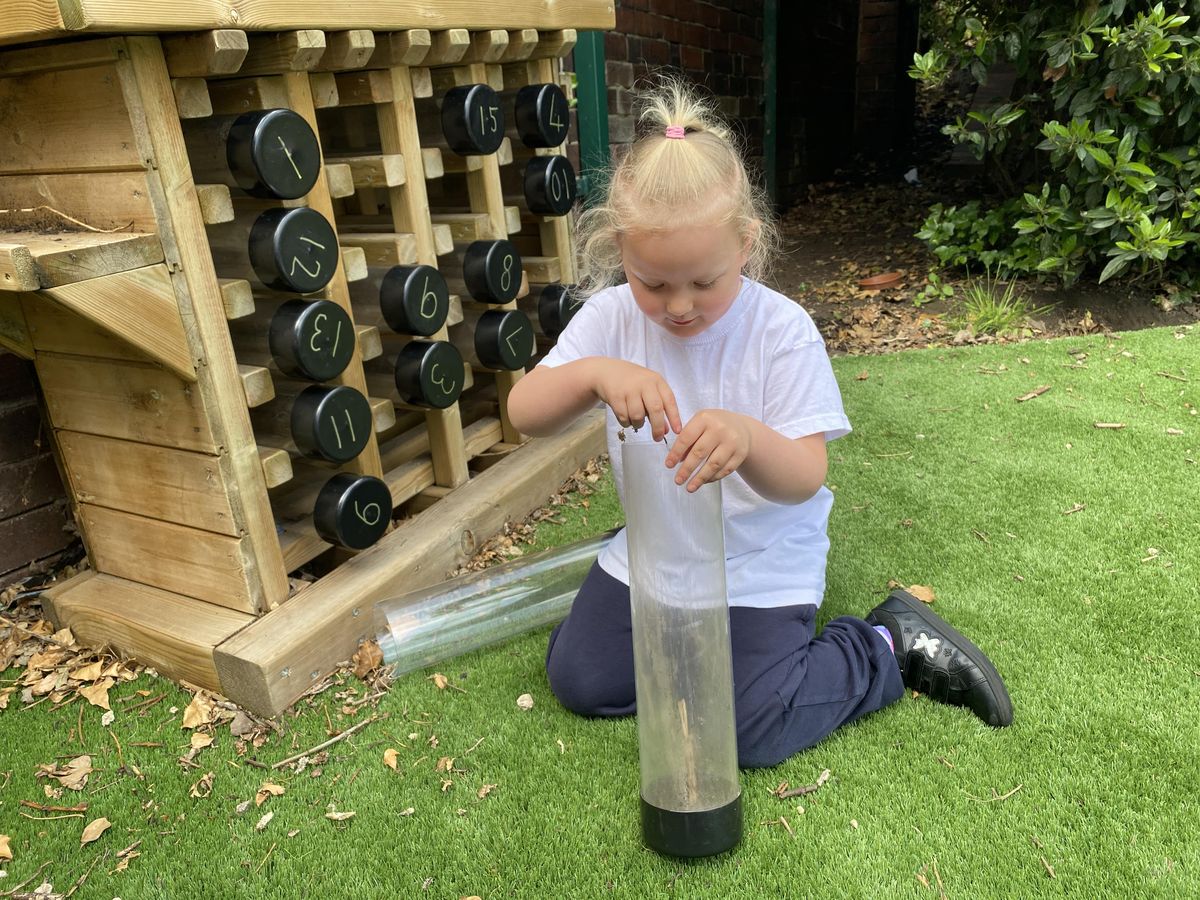
Ask the children to place their “Pods” back into the Bug Hotel and wait for a day to see what creepy crawlies have checked into the Bug Hotel!
Lesson Activity 2 (for rest of the week):
Take the groups back outside to the Bug Hotel. Ask them to take their “Bug Pod” out of the Bug Hotel. In their groups either place the “Pod” on the floor or use the investigation shelf and let the children see what minibeast have booked into their “Bug Pods”.
Children can use their magnifying glasses and identification sheets or the Identification Chart to observe, identify, and classify their minibeasts.
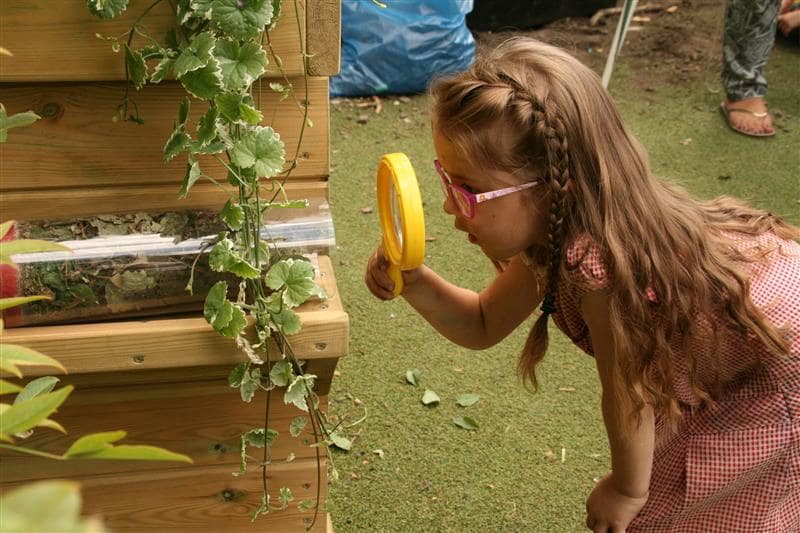
This activity could be done daily for the whole week to allow children to understand what insects live in the UK.
To extend the children's learning you could change the environment of the Bug Hotel by making it wetter or dryer… Can the children see if this affects the type of minibeasts that go into the “Pods”?
Get Your School Ready For Insect Week Today!
With the lesson plans on building Bug Hotels and other fun insect related activities such as Bug Hunts, planting flowers and plants (which attract insects and makes your school pollinator friendly) in resources such as Pentagons' 4 seater planter bench or designing posters about insect conservation, schools can now be well-prepared for Insect Week and enhance their pupils’ understanding of insects and their benefits.
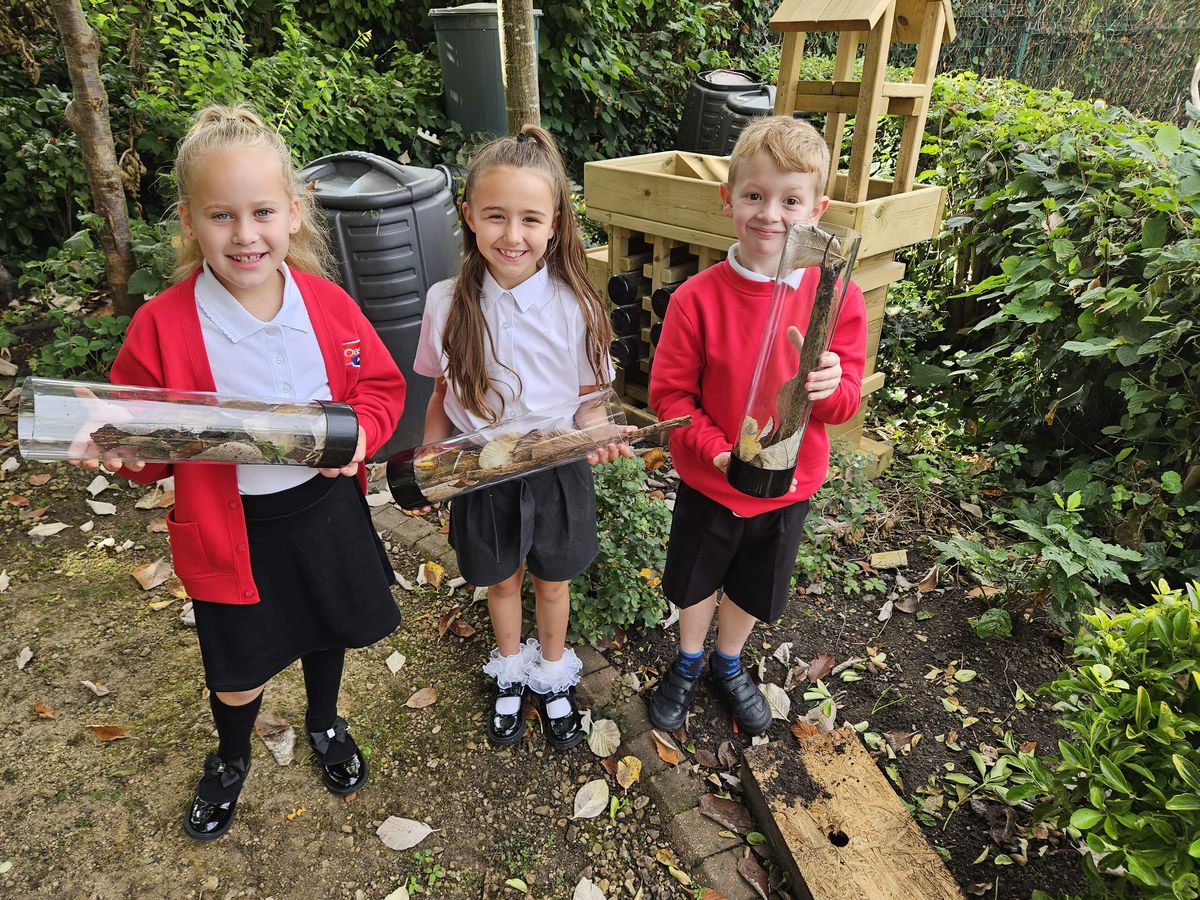
By actively engaging in these activities, schools not only contribute to insect conservation but also empower pupils with knowledge about the vital role insects play in our environment.
